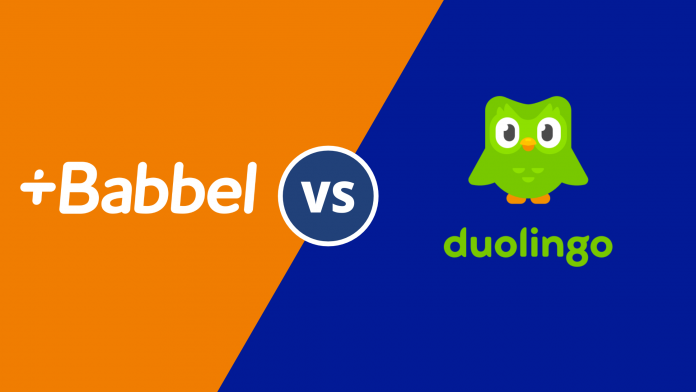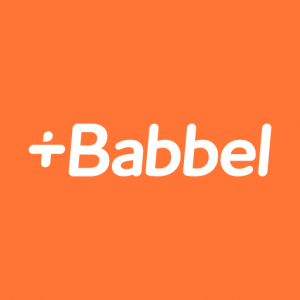As an experienced teacher, you know that worksheets are valuable tools for reinforcing concepts and engaging students in active learning.
They provide a structured framework that allows them to practice and apply their knowledge.
At present, you can use these things almost for any subject and develop diverse designs using a simple worksheet template — StoryboardThat and similar platforms provide all the means to incorporate this element into your teaching process.

However, creating great worksheets from scratch can be a bit overwhelming. But no worries; that’s where this blog post comes to the rescue!
Below, we’ll share tips and tricks to effectively use worksheet templates across different subjects.
Whether you’re an experienced teacher or a new educator, these strategies will help you make the most of these handy resources. Let’s begin!
Find the Right Template First
Everything begins with the selection of the template. Picking the appropriate one is crucial to creating a well-designed worksheet.
While seeking your perfect one, consider the following factors:
1. Format
Decide on the one that best suits your teaching style and student needs. Options vary from multiple-choice and fill-in-the-blank to matching and more. Be sure to tailor the chosen format to the subject and learning objectives.
2. Layout
Opt for a clean and organized layout that is visually appealing. Avoid clutter and make sure there’s sufficient space for students to write their answers, express interpretations, or add any brief notes.
3. Graphics, Imagery, and Fonts
Finally, integrate relevant graphics, pictures, charts, icons, or diagrams. These things simplify complex concepts, making them more accessible and memorable. That way, you’ll support the content, provide visual cues, and generally make the worksheet more engaging. Also, choose legible fonts that are easy to read.
If you develop a science worksheet about the water cycle, you can use images of clouds, rain, and arrows to illustrate the different stages. And a clear, easy-to-read font like Arial or Calibri would work well for the instructions and questions.
Customize the Template for your Lesson
While templates provide a foundation, personalizing them for your specific lesson adds an extra touch.
Below are a few meaningful points to pay attention to while you customize your educational creation.

Learning Objectives
Clearly define your learning objectives and align them with the worksheet’s content. Ensure the given questions and activities address these purposes.
For instance, if your objective is for students to understand the concept of fractions, come up with questions that require them to identify and compare fractions or solve problems involving them.
Language Level
It is crucial to adapt the language and vocabulary to match the proficiency level of your learners. So, modify instructions, questions, and examples accordingly.
If you’re preparing a grammar worksheet, adjust the sentences’ complexity based on the students’ language proficiency. For beginners, use simple sentences with basic grammar structures, while for advanced learners, include more complex constructions.
Real-World Connections
If appropriate, you can add real-life examples and scenarios that resonate with your students. This relatable content ultimately enhances engagement and relevance.
For a social studies worksheet on global citizenship, incorporate scenarios that require learners to think about real-world issues and their impact on society. This feature helps them connect the content to their own lives and grasp its significance.
Remember that Variety is the Key
Using the same type of worksheet repeatedly can lead to monotony. So, keep your students engaged by incorporating variety into your templates.

Here are a few simple tips for doing this:
- Add diverse question types. Integrating a mix of questions allows for catering to different learning styles. Use multiple-choice, true/false, short answer, and problem-solving options to promote critical thinking.
For example, in a history worksheet, you can include multiple-choice questions that test students’ knowledge of key historical events, short answer questions that require them to explain causes and effects, and even open-ended questions that encourage them to analyze and evaluate historical perspectives.
- Employ some interactive components. Experimenting with variants like puzzles, word searches, or crossword puzzles helps add an element of fun while reinforcing knowledge.
On a language arts worksheet, you can make a crossword puzzle where students must fill in the correct vocabulary words based on the given clues. This easy trick not only strengthens their understanding of the terminology but also provides both excitement and challenge to the worksheet at the same time.
Consider the Scaffold Learning Method
Scaffolding is a widespread educational practice. It’s a powerful tool that helps learners retain and apply new knowledge. This teaching technique is valuable to assist students in acclimating to new topics. Worksheet templates can be used to scaffold learning, especially for complex subjects.
Here’s how you can do it effectively:
Progression
Design worksheets that progressively increase in difficulty, allowing students to build their skills and knowledge step by step.
Start with easier questions or activities that serve as a review or introduction to the topic. Then gradually increase the complexity and challenge as students become more comfortable with the concepts. This gradual approach allows them to build confidence and mastery.
Guided practice
Provide guided practice by offering hints, step-by-step instructions, or worked examples on the worksheet. It’s how you can assist students in developing their problem-solving skills.
However, including instructions or instances along with more challenging questions is necessary. It’ll give learners a clear understanding of the process and allow them to independently apply the same strategies to solve similar problems.
Differentiation
Modify the template to fit different skill levels or learning needs. Create extension activities or extra challenges for advanced students and provide additional support for struggling learners.
For instance, in a science worksheet about the solar system, incorporate supplementary extension questions for advanced students, such as researching and presenting information about a specific planet. For struggling learners, offer simplified versions of the questions or deliver extra resources for reference.

Encourage Student Reflection
Worksheets can be more than just a tool for practice; they can foster student reflection and metacognition. There are several great ways to do this.
Reflection Questions
Include reflection questions at the end of the worksheet to encourage learners to think critically about their learning experience. Ask them to evaluate their knowledge, identify areas for improvement, or connect the content to real-life situations.
For example, in a literature worksheet, you can ask students to reflect on the themes of a novel they read and explain how those themes relate to their own lives or society at large. It helps them develop a deeper understanding and make personal connections.
Peer Discussions
Promote peer collaboration by incorporating opportunities for learners to discuss their answers with a partner or in groups. It enhances communication skills and allows students to learn from each other.
After completing a worksheet, allocate time for discussing the responses with a fellow student or in small groups. Encourage learners to explain their reasoning, share different perspectives, and deliver constructive feedback. This collaborative approach fosters deeper understanding and strengthens interpersonal skills.
Coming to the Upshot
Worksheet templates are invaluable resources that can make your teaching journey smoother and more efficient. You can maximize their potential across various subjects by following the outlined tips and tricks. With these practical strategies in your teaching toolkit, you’ll be able to develop fascinating and compelling worksheets that will captivate your students and boost their learning outcomes.
Overall, integrating these resources into your teaching practice will not only save you time but also make your lessons more dynamic and interactive. So go ahead, explore the plethora of available templates, and unlock their full power in your classroom!












 For the past 25 years, Rosetta Stone has been a leader in language learning. The methods of practice are standard language learning activities you may still recall from your school days. With perfect responses in pronunciation, vocabulary, and grammar, you can review your progress. Rosetta Stone mainly works through daily speech and language exercises via online forums, chats, and activities with speech recognition. It is a subscription-based language study service, but you may
For the past 25 years, Rosetta Stone has been a leader in language learning. The methods of practice are standard language learning activities you may still recall from your school days. With perfect responses in pronunciation, vocabulary, and grammar, you can review your progress. Rosetta Stone mainly works through daily speech and language exercises via online forums, chats, and activities with speech recognition. It is a subscription-based language study service, but you may  Busuu is an excellent app for learning the target language every day in a fun way that will stick in your head. This free program provides a study route that you can follow if you are already familiar with the target language. It asks you to read, listen to, and say common phrases before working through a few tasks to reinforce what you’ve learned. It is the best app for general vocabulary activities and memorisation.
Busuu is an excellent app for learning the target language every day in a fun way that will stick in your head. This free program provides a study route that you can follow if you are already familiar with the target language. It asks you to read, listen to, and say common phrases before working through a few tasks to reinforce what you’ve learned. It is the best app for general vocabulary activities and memorisation. Babbel has been highly rated by many of its users as it offers to learn 14 different languages in one app. You can start for free to test it for yourself first before you join the subscription. Rather than providing pre-packaged courses, it offers customized lectures to keep learners engaged. It breaks down lectures into small, easy to understand and comprehensive materials. Also, it includes engaging quiz-like activities.
Babbel has been highly rated by many of its users as it offers to learn 14 different languages in one app. You can start for free to test it for yourself first before you join the subscription. Rather than providing pre-packaged courses, it offers customized lectures to keep learners engaged. It breaks down lectures into small, easy to understand and comprehensive materials. Also, it includes engaging quiz-like activities. If you are looking for a different language learning experience that other language applications do not offer, you should investigate Duolingo. The app contains some unique possibilities among its 38 language learning options. If you want to enter more than one language course, that’s not a problem. There are lectures and a well-developed in-app activity mechanism that encourages you to review previous materials for your language practice, so you continue where you left.
If you are looking for a different language learning experience that other language applications do not offer, you should investigate Duolingo. The app contains some unique possibilities among its 38 language learning options. If you want to enter more than one language course, that’s not a problem. There are lectures and a well-developed in-app activity mechanism that encourages you to review previous materials for your language practice, so you continue where you left.
































